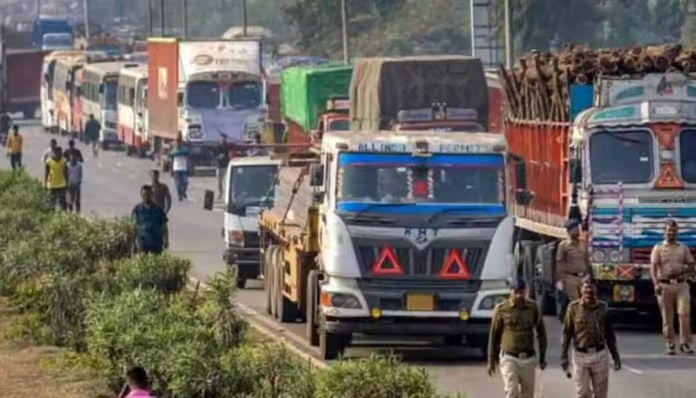In a major move reflecting growing discontent over rising operational costs, commercial vehicle owners in Mizoram have announced a strike starting October 14, 2024. This decision comes in response to the relentless increase in fuel prices, which has severely impacted the livelihoods of transport operators across the state. The strike aims to draw attention to the financial strain faced by the sector and to demand urgent governmental intervention.
The Context of the Strike
Mizoram, known for its hilly terrain and unique geographical challenges, relies heavily on commercial vehicles for the transportation of goods and passengers. The continuous rise in fuel prices has made it increasingly difficult for operators to maintain their vehicles and sustain their businesses. This situation has led to widespread frustration among commercial vehicle owners, prompting them to unite for a collective response.
Reasons Behind the Strike
- Soaring Fuel Prices: Over the past few months, fuel prices in India have reached unprecedented levels, significantly affecting the cost of operation for commercial vehicles. This increase has squeezed profit margins and made it challenging for vehicle owners to remain viable in the competitive market.
- Economic Impact: The rising fuel costs have had a domino effect on the overall economy. Higher transportation costs are passed on to consumers, leading to increased prices for goods and services. This inflationary pressure is particularly burdensome for low-income families, who are already struggling to make ends meet.
- Demand for Government Intervention: Commercial vehicle owners are calling for the Mizoram government to take immediate action to alleviate their financial burdens. This includes demands for a reduction in fuel taxes and the introduction of subsidies to support the transportation sector.
The Implications of the Strike
The upcoming strike is expected to have far-reaching implications for various sectors in Mizoram, affecting not only vehicle owners but also businesses and consumers alike.
1. Disruption of Transportation Services
With commercial vehicle owners participating in the strike, transportation services across Mizoram will face significant disruptions. This includes the movement of essential goods, public transportation, and logistics services. The strike could lead to shortages of critical supplies, impacting local businesses and consumers.
2. Economic Consequences
The strike’s impact will reverberate through the local economy. Increased transportation costs can lead to higher prices for goods, making it even more challenging for residents to afford essential items. Businesses reliant on timely deliveries may face delays, potentially damaging their reputation and financial stability.
3. Public Reaction and Support
As news of the strike spreads, public sentiment will likely play a crucial role. While many citizens may empathize with the commercial vehicle owners’ plight, others may be concerned about the disruptions caused by the strike. The local government will need to navigate these concerns while addressing the grievances of vehicle owners.
Government Response
In light of the looming strike, the Mizoram government faces pressure to respond swiftly to the demands of commercial vehicle owners. Possible measures could include:
1. Engaging in Dialogue
The government may initiate discussions with representatives from the commercial vehicle sector to better understand their concerns and explore potential solutions. Open communication is essential for finding a middle ground that addresses the needs of both parties.
2. Reviewing Fuel Tax Policies
A comprehensive review of fuel tax policies could lead to adjustments that provide relief to vehicle owners. By considering a reduction in taxes or the introduction of subsidies, the government can demonstrate its commitment to supporting the transportation sector.
3. Implementing Long-Term Solutions
In addition to addressing immediate concerns, the government may need to explore long-term solutions to stabilize fuel prices and support the transport sector. This could involve investing in alternative fuel sources or enhancing public transportation infrastructure to reduce reliance on commercial vehicles.
As the strike date approaches, both commercial vehicle owners and the government must recognize the importance of collaboration. While the strike serves as a platform to voice grievances, it is crucial to seek solutions that benefit all stakeholders.
1. Collective Action for Change
Commercial vehicle owners must remain united in their efforts while also being open to negotiation and dialogue. Collaboration with government officials can lead to effective policies that address fuel price challenges while ensuring the sustainability of the transportation sector.
2. Public Support and Awareness
Gaining public support for their cause will be vital for commercial vehicle owners. Engaging with the community, sharing their stories, and raising awareness about the impact of rising fuel prices can help garner sympathy and solidarity from the public.
The impending strike by commercial vehicle owners in Mizoram is a major event that highlights the pressing issue of rising fuel prices and their economic implications. As stakeholders navigate this challenging landscape, finding common ground and implementing effective solutions will be crucial for the sustainability of the transportation sector and the well-being of the community.




